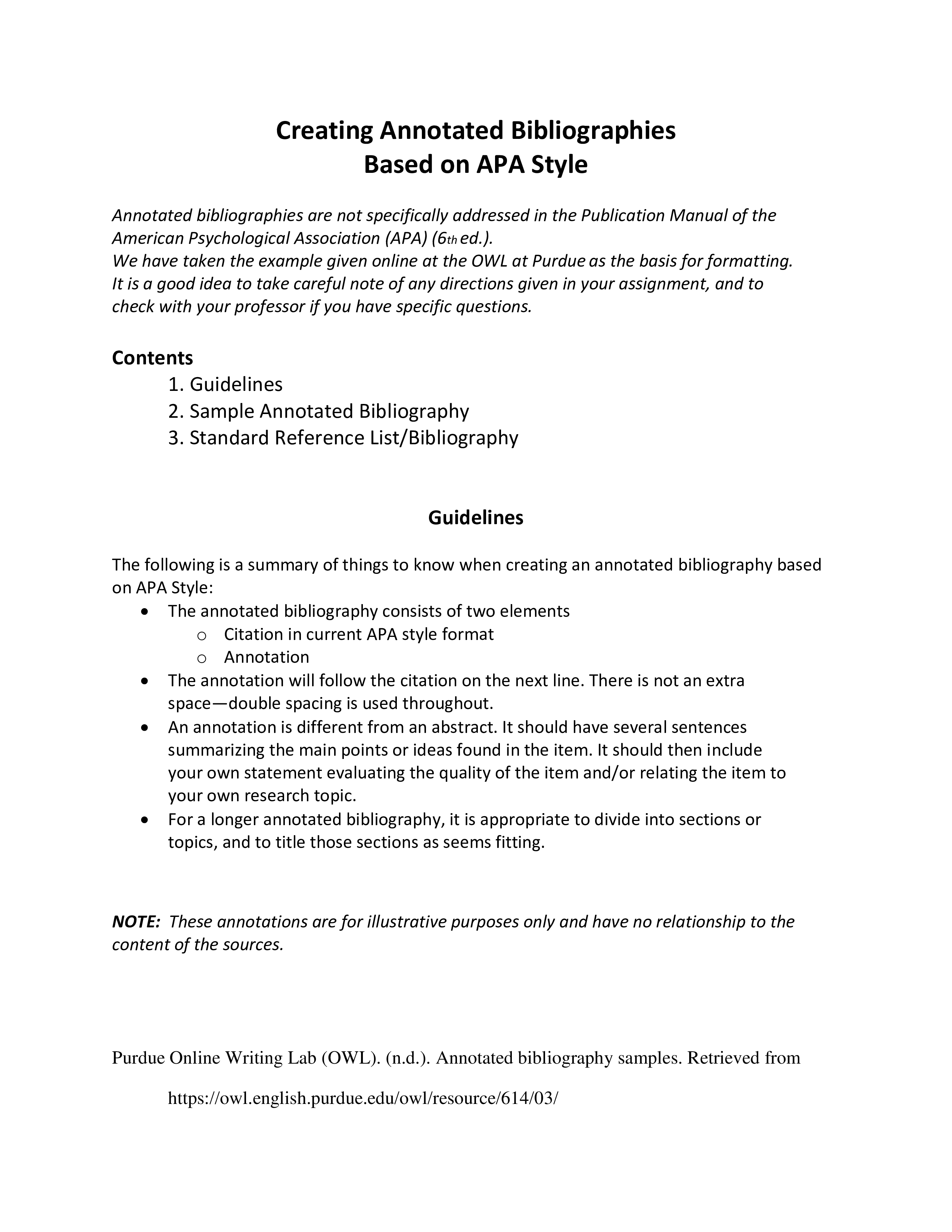Simple Annotated Bibliography Purdue Generator
Save, fill-In The Blanks, Print, Done!

Download Simple Annotated Bibliography Purdue Generator
Adobe Acrobat (.pdf)- This Document Has Been Certified by a Professional
- 100% customizable
- This is a digital download (383.86 kB)
- Language: English
- We recommend downloading this file onto your computer.
What are the steps to writing an annotated bibliography? Do you need a simple template for annotating a bibliography? This template will help you quickly create an annotated bibliography. It includes sections for listing sources, summarizing them, and providing an evaluation. It also provides a checklist to help you make sure you've included all the necessary information. Download this sample template now!
An annotated bibliography is a list of citations to books, articles, and other sources, each accompanied by a brief descriptive and evaluative paragraph, known as an annotation. The purpose of an annotated bibliography is to inform the reader of the relevance, accuracy, and quality of the sources cited.
Here are the key components of an annotated bibliography:
- Citation: Each entry in the annotated bibliography begins with a citation of the source. This citation provides the necessary information for readers to locate the source, including details such as the author's name, title of the work, publication date, and other publication information.
- Summary: Following the citation, there is a summary or abstract of the source. This summary outlines the main ideas, arguments, and key points presented in the source. It provides a concise overview of the content.
- Evaluation: After the summary, the annotation includes an evaluation of the source. This evaluation assesses the source's reliability, credibility, and overall quality. It may also discuss the author's qualifications, the intended audience, and the source's contribution to the field of study.
- Relevance: The annotation concludes with a statement about the source's relevance to the research topic or project. This section explains why the source is valuable and how it contributes to the overall understanding of the subject.
Annotated bibliographies are often used in academic research to provide a comprehensive overview of the literature on a particular topic. They help researchers and readers assess the credibility and usefulness of various sources before delving into the full texts.
Feel free to download this intuitive template which is available in several kinds of formats, or try any other of our basic or advanced templates, forms or documents. Don't reinvent the wheel every time you start something new...
Download this Simple Annotated Bibliography Purdue Generator template and save yourself time and efforts! You will see completing your task has never been simpler!
DISCLAIMER
Nothing on this site shall be considered legal advice and no attorney-client relationship is established.
Leave a Reply. If you have any questions or remarks, feel free to post them below.
Related templates
Latest templates
Latest topics
- GDPR Compliance Templates
What do you need to become GDPR compliant? Are you looking for useful GDPR document templates to make you compliant? All these compliance documents will be available to download instantly... - Google Docs Templates
How to create documents in Google Docs? We provide Google Docs compatible template and these are the reasons why it's useful to work with Google Docs... - IT Security Standards Kit
What are IT Security Standards? Check out our collection of this newly updated IT Security Kit Standard templates, including policies, controls, processes, checklists, procedures and other documents. - Letter Format
How to format a letter? Here is a brief overview of common letter formats and templates in USA and UK and get inspirited immediately! - Google Sheets Templates
How to work with Google Sheets templates? Where to download useful Google Sheets templates? Check out our samples here.
cheese

